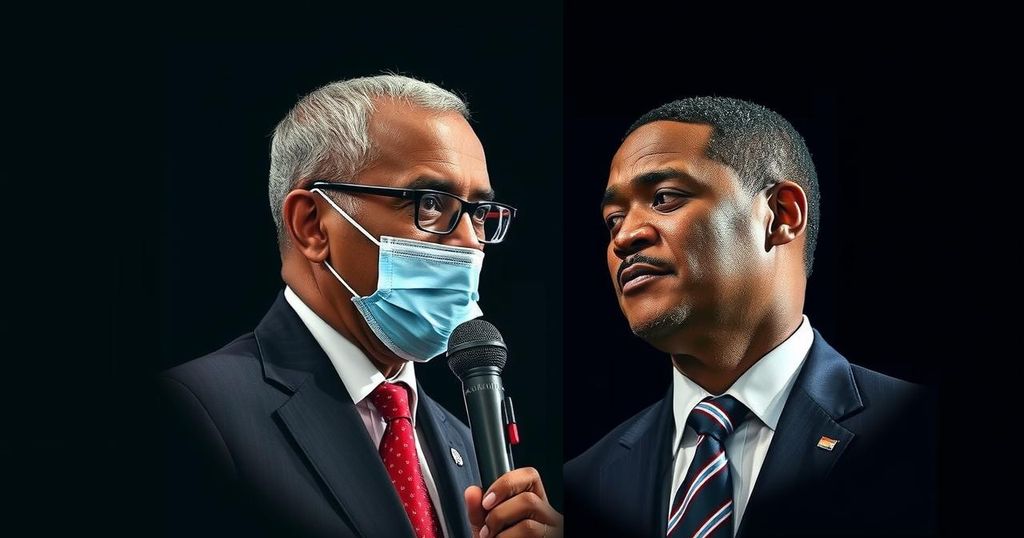Opposition Officials in Mozambique Assassinated Ahead of Election Protests
Two opposition officials from the Podemos party in Mozambique were assassinated prior to protests against disputed election results, exacerbating existing tensions in the country. The attack, described as a political assassination, highlights ongoing concerns regarding electoral integrity and political violence in Mozambique.
In Mozambique, gunmen have fatally shot two prominent officials from the opposition Podemos party, a move that has intensified existing tensions ahead of planned protests against a disputed election outcome. The deceased, Elvino Dias, the party’s lawyer, and Paulo Guambe, a party representative, were attacked late Friday night in the nation’s capital, Maputo. The assailants pursued their vehicle and reportedly fired multiple shots, resulting in their immediate deaths. Visual evidence circulated on social media displayed their bullet-riddled vehicle along with graphic imagery suggesting the violent nature of the attack. These killings occurred during a climate fraught with tension as citizens await the announcement of results from the October 9 election, wherein allegations of electoral fraud and suppression of dissent against the long-ruling Front for the Liberation of Mozambique (Frelimo) party have proliferated. Podemos has dismissed provisional results showing a victory for Frelimo and has called for a nationwide strike set for Monday. Additionally, independent presidential candidate Venancio Mondlane has received backing from Podemos. The party has condemned the murders as further proof of the systemic absence of justice in Mozambique. In a statement from the NGO Center for Democracy and Human Rights, Adriano Nuvunga characterized the killings as cold-blooded murder and a clear political assassination. This incident follows a pattern of violence against political opposition in Mozambique, as demonstrated by prior confrontations where security forces have opened fire on protesters. The international community, including Human Rights Watch, has also raised concerns regarding the integrity of the election process, which has historically been challenged by allegations of manipulation and violence dating back to the advent of democracy in 1994. Initial counts indicate Frelimo’s continued dominance, with candidate Daniel Chapo poised to succeed President Filipe Nyusi. With final results anticipated on October 24, fears mount regarding the potential for escalated violence during the upcoming protests.
Mozambique, situated in southern Africa, has experienced persistent political unrest, particularly relating to the electoral process. Following the end of a 16-year civil war in 1992, the country transitioned to democracy in 1994, yet allegations of electoral fraud and government brutality have cast a shadow over its democratic processes ever since. The ruling party, Frelimo, has maintained control for nearly five decades, leading to widespread dissatisfaction among opposition groups. As the nation approaches critical elections, accusations of vote-rigging and crackdowns on dissent suggest an increasingly volatile political climate, exemplified by the recent murders of opposition officials.
The assassination of two opposition figures in Mozambique ahead of key electoral protests underscores the escalating violence and volatility within the nation’s political arena. With growing allegations of electoral fraud against Frelimo, the situation threatens to spiral further amidst calls for protests. This tragic incident not only highlights the dangers faced by political opponents in Mozambique but also raises pressing questions about the state of democracy and human rights in the country as it grapples with longstanding issues of political suppression.
Original Source: www.aljazeera.com




Post Comment